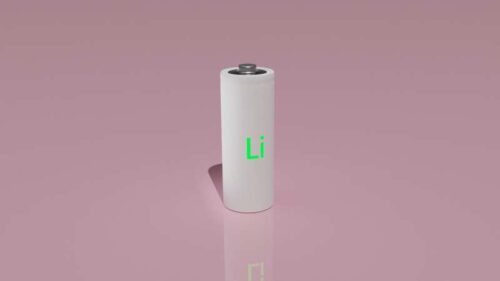Researchers at the University of California Irvine and other institutes across the United States have developed cobalt-free cathodes for Li-ion batteries, preserving battery performance.

Li-ion batteries store energy with lithium ions and are popular due to their performance and lifespan. They power devices like smartphones, laptops, and EVs. However, their cost rises due to high-demand materials like cobalt and nickel. Experts seek cobalt- and nickel-free designs to lower costs and enable mass production.
Researchers at the University of California Irvine and other institutes across the United States have introduced an innovative approach to developing cobalt-free Li-ion battery cathodes. This strategy aims to ensure that the performance of the batteries remains unaffected by the absence of cobalt.
In 2020, the team formulated a novel approach to achieve zero-strain in a high-Ni (Ni-80%) active cathode material (CAM). Their strategy revolves around complex concentration doping, which alters material properties by adding specific dopant chemical substances. The researchers have proposed a concentration-complex doping method with several significant benefits. By implementing low cation mixing, this approach has demonstrated the capability to achieve a high capacity of 190 mAh/g at C/10 and a high specific energy of 700 Wh/kg at C/3 in cathode materials. Moreover, it exhibits excellent thermal stability and prolongs the lifespan of batteries, making it a highly desirable solution.
The proposed strategy is cost-effective. The researchers have successfully demonstrated low cation mixing, resulting in impressive outcomes such as a high capacity of 190 mAh/g at C/10, a high specific energy of 700 Wh/kg at C/3, superior thermal stability compared to NMC-532, and an extended cycle life of over 4000 cycles. These achievements position our strategy as a competitive alternative to LFP cells. Diverging from other proposed strategies aimed at reducing the dependence of Li-ion batteries on cobalt (Co) and nickel (Ni), the teams’ approach stands out by eliminating the need for surface coating of the materials. This characteristic simplifies its large-scale implementation, offering a practical advantage over alternative methods.
The team’s strategy yielded high-performing Co-free cathodes, enabling stable Li-ion batteries with long lifecycles. It has the potential for affordable battery production and inspiring cobalt-free approaches.
Reference:
Rui Zhang et al, Long-life lithium-ion batteries realized by low-Ni, Co-free cathode chemistry, Nature Energy (2023). DOI: 10.1038/s41560-023-01267-y
Rui Zhang et al, Compositionally complex doping for zero-strain zero-cobalt layered cathodes, Nature (2022). DOI: 10.1038/s41586-022-05115-z








